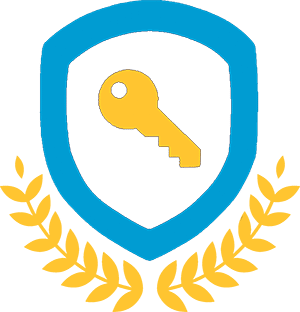Leaders help us to grow, but only if we’re willing to learn from them. Most leaders adhere to the principled path of living we describe in our journal. They define success, create plans, and document those plans. They build their tools, tactics, and resources. Then they measure their progress regularly. We can learn from the ways that they executed their projects.
I grew up in Lake Forest Park, a small community on the north end of Lake Washington. By the time I graduated high school, some of the friends I had chosen were making bad decisions. As a result of the influence those people had over me, I started to make bad decisions. Within a few years, I would have to start climbing out from a lengthy prison term.
By reading the story of Socrates, I started to think differently. I had to choose the leaders from whom I would learn. Rather than learning from people making bad decisions, I consciously learned from leaders I wanted to emulate.
Like people from all around the world, I admired Nelson Mandela. As I started to serve my sentence, he walked out after 27 years in prison. In my case, the sentence followed the bad decisions I made to sell cocaine. With Nelson Mandela, the prison term followed the injustice of racist policies in South Africa.
A biography on Mandela, A Long Walk to Freedom, taught me a great deal about coping with adversity.
Similarly, I read Man’s Search for Meaning by Dr. Viktor Frankl. Nazi guards captured Dr. Frankl and his family. The guards transported them on a crowded train to a concentration camp, and they killed his family members as he stood by helplessly. Then, the guards locked Dr. Frankl in the camp with expectations that he would serve the Nazi regime. He never knew whether he would live or die from one day to the next. Despite such horrific conditions, Dr. Frankl learned that he could create meaning by focusing on problems that were bigger than any one individual.
Complaining could make a man weak. But Nelson Mandela and Dr. Viktor Frankl helped me to understand that we could empower ourselves by working to serve others. Despite being incarcerated for 27 years, Nelson Mandela emerged without bitterness or hatred. Instead, he devoted his life to improving his community.
Similarly, Dr. Frankl left the horrific conditions of Nazi concentration camps to create the concept of “logotherapy,” which helped people to lead meaningful and contributing lives.
Those men provided a model of excellence when it came to personal leadership. I learned a great deal from them. Like many other leaders, they showed us how to overcome our challenges. But as one artist taught me:
- “It’s one thing to know the way. It’s another matter entirely to walk the way.”
We’re all on our journey through life. And we all face struggles and challenges. The quarter-century I served in prison was only one part of the trip. Since my release in August of 2013, I’ve met many people who live in prisons of their own making. They may have never stepped foot inside an institution, but their mindset blocks them from building a more fulfilling life.
We’re all tasked with charting our way through life’s journey. When I started to find better leaders, I began to make better decisions. Those decisions opened new opportunities. I’m convinced that anyone learns from good leaders. For that reason, we should choose our leaders wisely.
- Name three leaders that you admire.
- What are the characteristics you admire about those leaders?
- What decisions did those leaders make along their journey?
- What lessons from those leaders can you apply to your life?
- Describe how decisions you made last week harmonize with the kinds of decisions those kinds of leaders make.
- How would the leaders you’ve identified adjust to the circumstances you’re in now?
Word of the day: emulate / Define emulate:
Use emulate in a sentence:

